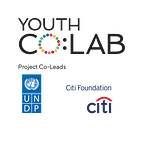YSE Series: SuperFoods Start-up LVL Life’s Advice for Young Social Entrepreneurs in Singapore
Superfoods such as kale and acai are hugely popular today and are also big businesses around the world. The global market size of superfoods is expected to reach $209.1 billion by 2026, according to Business Wire. One Singapore-based startup hopes to bring regional plant-based ingredients such as Ashwagandha, Moringa, and Baobab into the mainstream, and help Singaporeans become healthier.
“With most of our superfood ingredients sourced locally in Asia, we at LVL LIFE strongly believe that it should be better integrated into our daily lives.”
-Avinash Aswani.
Although superfood products are still not common in the region, LVL LIFE is working towards breaking through this new market and leading the front in encouraging more plant-based diets.
We spoke to Avinash Aswani, who is an expert in the fields of personal fitness and wellness, to delve into his journey as a young social entrepreneur.
1. What advice would you provide to budding young social entrepreneurs in Singapore?
Avinash: Have a vision for your journey but take it to step by step. As a young social entrepreneur, you should start small first and with small quantities of product. This may result in budding entrepreneurs paying higher prices in the beginning but it’s highly important to test your business model first, and see how the market reacts.
In terms of creating an idea, you should start by understanding problems, and see if enough people face them. That’s the key to a successful business idea. In terms of execution, young social entrepreneurs should continuously look for help or feedback from others and form a community with a shared goal.
2. With the recent COVID-19 pandemic, what steps has LVL life taken to tide out this wave? What recent fad on plant-based and superfood diets have you noticed?
Avinash: LVL life was originally an e-commerce business, so the COVID-19 pandemic did help push more consumers to shop online with us. With rising concerns around health, people have moved to more plant-based consumption and have slowly weaned off meat. This also ties in with the ever-increasing trend of veganism. Overall, our numbers have increased quicker than we originally forecasted.
3. Where do you see your company in the next three years?
Avinash: For the next three years, we do have three new products to be released with different protein mixes. We also see ourselves mostly selling within Singapore moving forward and combining an on the ground strategy with our current online presence.
For our product offering, we do see ourselves playing a bigger role by identifying the daily greens that should be incorporated into people’s minds and bodies. This is because our main target audience is individuals that were not previously healthy before and helping them to pivot into a healthier lifestyle.
This blog is part of our Singapore Youth Social Entrepreneurship (YSE) Series. To access our previous YSE blog and the latest updates on the Youth Co:Lab , click here.
Stay tuned as in our next few blogs, we will continue to showcase the Youth Social Entrepreneurship Ecosystem in Singapore, as well as address some of the main challenges and opportunities for the youth willing to take this journey or already on it.
About Youth Co:Lab
Co-created in 2017 by the United Nations Development Programme (UNDP) and the Citi Foundation, Youth Co:Lab aims to establish a common agenda for countries in the Asia-Pacific region to empower and invest in youth, so that they can accelerate the implementation of the Sustainable Development Goals (SDGs) through leadership, social innovation and entrepreneurship. To learn more about the Youth Co: Lab, visit: https://www.youthcolab.org/
